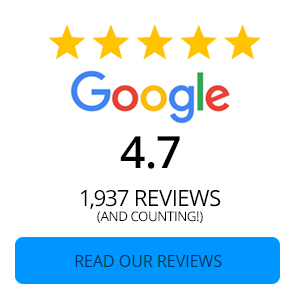When it's time to get a new set of wheels, one of the biggest financial decisions you'll face is answering the question: is it better to lease or buy a car? Both options get you behind the wheel, and both typically involve upfront costs and monthly payments. However, the paths of leasing vs. buying a car diverge significantly when it comes to ownership, long-term costs, and flexibility.
To determine if you should buy or lease a car, you need to understand the fundamental differences and how they align with your lifestyle, budget, and driving habits. This guide will walk you through the pros and cons of each, so you can make an informed decision.
What is Car Leasing?
When you lease a car, you are essentially paying to use it for a fixed period, typically two to four years. The dealership or leasing company retains ownership of the vehicle. Your monthly payments cover the car's depreciation during the lease term, plus interest and fees. At the end of the lease, you simply return the car to the dealer. Some leases offer the option to purchase the car at a predetermined price, but many drivers choose to lease a brand-new model.
Pros of Leasing a Car
Lower Monthly Payments: Because you're only paying for the vehicle's depreciation over the lease term, monthly lease payments are often significantly lower than loan payments for the same car.
Lower Upfront Costs: The down payment required for a lease is typically less than for a purchase.
Drive a New Vehicle More Often: Leasing allows you to enjoy the latest technology, safety features, and styles by getting a new car every few years.
Fewer Maintenance Worries: A new car is usually covered by the manufacturer's warranty for the duration of the lease, meaning most repair costs are covered.
No Resale Hassle: At the end of your term, you don't have to worry about selling the car or its trade-in value. You just hand over the keys.
Cons of Leasing a Car
No Ownership or Equity: Your monthly payments do not build equity. At the end of the lease, you have nothing to show for your payments.
Mileage Restrictions: Most leases come with mileage limits, often between 9,000 and 15,000 miles per year. As US News and World Reports points out, exceeding this limit results in expensive per-mile overage fees.
Wear and Tear Fees: You are responsible for keeping the car in excellent condition. Any excessive wear and tear, such as dents, scratches, or stained upholstery, can result in hefty fees when you return the vehicle.
Limited Customization: Since you don't own the car, you cannot make any permanent modifications or customizations.
Costlier in the Long Run: If you are always leasing, you will always have a car payment. Over a lifetime, constantly leasing is generally more expensive than buying a car and driving it for many years.
What is Car Buying?
When you buy a car, it's yours from the moment you sign the paperwork. You can pay for it upfront with cash or finance it with an auto loan from a financial institution like a credit union. With a loan, you make monthly payments over a set term (e.g., five or six years). Once the loan is paid off, you own the car outright, and the payments stop.
Pros of Buying a Car
Full Ownership and Equity: The car is your asset. Each payment builds equity, and once the loan is paid off, the car's value is yours to keep or use as a trade-in.
No Mileage Limits: You can drive as much as you want, wherever you want, without worrying about penalties.
Freedom to Customize: It's your car, so you can modify it, paint it, or upgrade the sound system to your heart's content.
Flexibility to Sell: You can sell or trade in the vehicle at any time.
More Cost-Effective Over Time: After you pay off the loan, you can enjoy years of driving without a car payment, making buying the cheaper option in the long term.
Cons of Buying a Car
Higher Monthly Payments: Auto loan payments are typically higher than lease payments because you are paying off the entire cost of the vehicle, not just its depreciation.
Higher Upfront Costs: A larger down payment is often required to secure a loan and reduce monthly payments.
Depreciation: The value of your car begins to drop the second you drive it off the lot. As Consumer Reports noted, you can end up "underwater" on your loan, meaning you owe more than the car is worth.
Long-Term Maintenance Costs: Once the factory warranty expires, you are responsible for all repair and maintenance costs, which can become substantial as the car ages.
Hassle of Selling: When it's time for a new vehicle, you have to handle the process of selling it privately or negotiating a trade-in value.
Lease vs. Buy Car: A Side-by-Side Comparison
To make the lease or buy decision easier, here's a quick breakdown of the key differences:
Feature |
Leasing a Car |
Buying a Car |
Monthly Payments |
Typically lower |
Typically higher |
Upfront Costs |
Lower down payment |
Higher down payment |
Ownership |
You do not own the car |
You own the car and build equity |
Mileage |
Annual limits with overage fees |
Unlimited |
Wear & Tear |
Fees for excessive wear |
Affects resale value, but no fees |
End of Term |
Return the car or buy it |
Keep, sell, or trade in the car |
Long-Term Cost |
More expensive |
Less expensive |
Percent of Cars Leased vs. Purchased: A Growing Trend
Deciding to lease or buy a vehicle is a choice more and more Americans are making. While the New York Times noted a rise in leasing popularity back in 2014, when 27 percent of new vehicles were leased, that trend has continued. More recent industry data from sources like Edmunds and Experian show that leasing consistently accounts for between 20% and 30% of all new vehicle sales, depending on economic conditions and manufacturer incentives. This shows that for nearly a third of new car shoppers, the benefits of leasing outweigh the appeal of ownership.
So, Is It Better to Lease or Buy a Car for You?
Ultimately, the right choice in the lease vs. buy car debate depends entirely on your personal circumstances and priorities.
You should consider LEASING if:
You want lower monthly payments and a small down payment.
You enjoy driving a new car with the latest features every two or three years.
You have a stable and predictable driving routine with a commute that won't exceed mileage limits.
You don't want to deal with the hassle of selling a used car.
You use your vehicle for business and can deduct the lease payments as a business expense (consult a tax professional).
You should consider BUYING if:
You want to build equity and own an asset.
You plan to keep your car for many years, long after the loan is paid off.
You drive a lot for work or take frequent long-distance road trips.
You want the freedom to customize your vehicle.
You prefer the financial stability of eventually having no car payment.
Ready to Get Behind the Wheel?
The better to lease or buy a car question doesn't have a single right answer. By weighing these pros and cons against your budget and lifestyle, you can confidently choose the best path forward. If you've decided that buying is the right choice for you, securing the right financing is the next critical step.
Coosa Valley Credit Union is here to help with competitive rates and flexible terms on auto loans. Contact us today to learn more about our car loan options and get pre-approved for your next vehicle.

